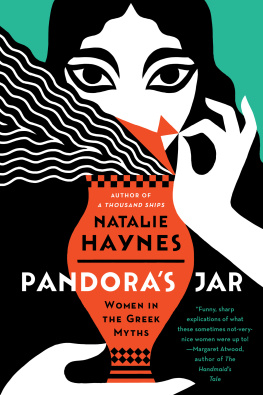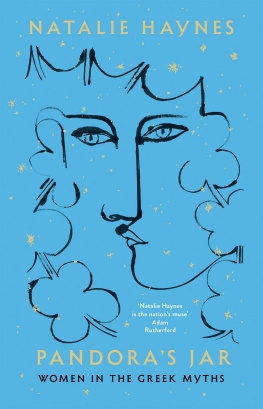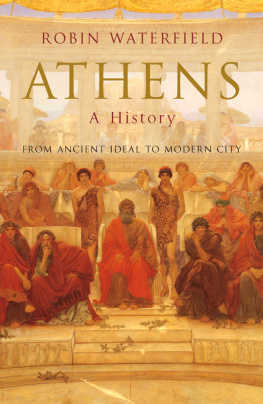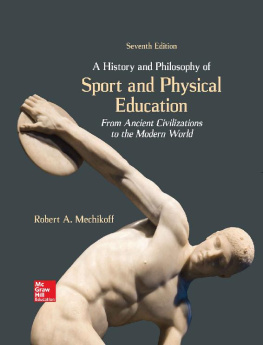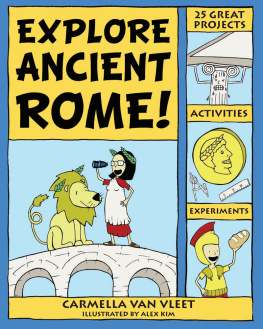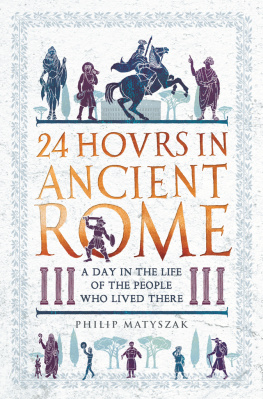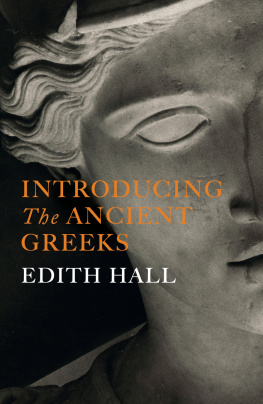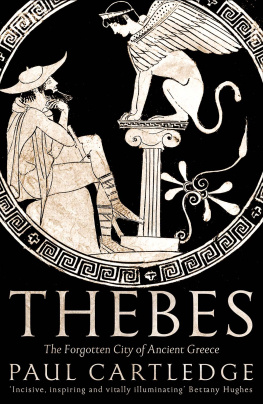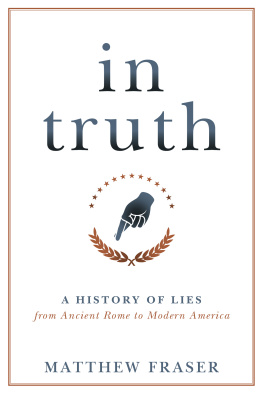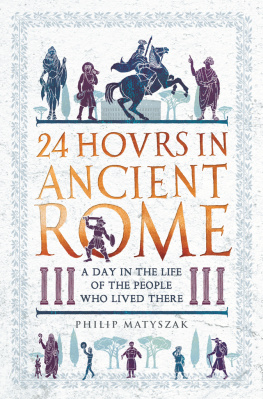THE ANCIENT GUIDE TO MODERN LIFE
THE ANCIENT GUIDE TO
MODERN LIFE
Natalie Haynes

First published in Great Britain in 2010 by
Profile Books Ltd
3A Exmouth House
Pine Street
London EC1R 0JH
www.profilebooks.com
This eBook edition published in 2010
Copyright Natalie Haynes, 2010
The moral right of the author has been asserted.
Typeset by MacGuru Ltd
This eBook is copyright material and must not be copied, reproduced, transferred,
distributed, leased, licensed or publicly performed or used in any way except as
specifically permitted in writing by the publishers, as allowed under the terms and
conditions under which it was purchased or as strictly permitted by applicable
copyright law. Any unauthorised distribution or use of this text may be a direct
infringement of the authors and publishers rights and those responsible may be
liable in law accordingly.
A CIP catalogue record for this book is available from the British Library.
eISBN 978 1 84765 293 5
For Dan
tecum vivere amem, tecum obeam lubens
Horace, Odes 3.9
Contents
Introduction

I have been obsessed with the ancient world since I was eleven years old, when I began learning about Roman Life at school. We read about Julius Caesar, looked at pictures of Hadrians Wall, and made scale models of temples from cardboard boxes (complete with a cotton-wool sacrificial sheep bleeding red nail varnish over one corner of the box). When I turned twelve, Roman Life became Latin, and the Cambridge Latin Course took over. These brightly coloured books introduced a new generation of classical scholars to Caecilius and his wife Metella, who lived in Pompeii and so had a death sentence hanging over them from Book One. Caecilius est in horto, we would chant, before grimly observing that he wouldnt survive the impending eruption from the garden, no matter how nice his triclinium was. I also remember some twins called Loquax and Antiloquax, about whom I can recall nothing else, although a residual suspicion of identical twins remains somewhere in my brain.
When we chose our GCSE subjects, it never occurred to me that I wouldnt take Latin, and if I was going to do Latin, I might as well take Greek, too. Luckily, my parents didnt see a need for any other living languages. French was enough. And this way, after all, there was no risk of a sullen German exchange student pitching up and moaning about everything in our house (which had happened with my brothers the year before. I think my brother then made up for it by going to Germany and eschewing wurst). If Id thought the whole thing through, of course, I would have borrowed the Italian girl from the year above me at school, taken her home, dressed her in a sheet and pretended she was my Roman exchange, but I had less imagination in those days, and got the giggles too easily to carry off that kind of thing well.
My future in Classics was probably determined by the set texts I was given to learn for GCSE. Book Two of Virgils Aeneid was the Latin verse its about the fall of Troy, the story of which we all thought we knew from those books on Greek myth wed read as children. Book Two explains the bit with the Trojan horse that previously had never made any sense: seriously, you had the Greeks camped outside your city for ten years, and then they go away, leaving a big, Greek-army-sized wooden horse outside; and you take it into the city, and are then surprised when it turns out to be full of soldiers with death on their minds. No wonder the Trojans had lost the war. They were idiots. Beware of Greeks bearing gifts didnt really cover it. Beware of Trojans, theyre too stupid to live was closer to the mark. How had they survived ten years of war without accidentally stabbing themselves through the eye with their own spears?
It turns out, when you actually read Book Two of The Aeneid, that the Trojans were not idiots. They did question the Greeks. Their priest, Laocon, busted the horse right from the start. Hes the one who says the line about beware the Greeks bearing gifts. He says the horse is full of Greek soldiers, or if it isnt, its some kind of infernal siege engine, designed to trash their city in some way. He even guesses who had the idea for the horse Ulysses (or Odysseus, to give him his Greek name). Laocon throws his spear into the horses flank and it vibrates there. You can only imagine the Greeks inside, holding their breath, thinking they were discovered. But then comes the Greeks master-stroke: Sinon. Sinon is a Greek, left behind by his countrymen when they sailed away. Hes dishevelled and unassuming, and he plays the Trojans like a cheap violin. He presents himself as a victim of Ulysses machinations Ulysses has hated his family for years. And then he refuses to say any more. Why dont the Trojans simply kill him, he asks. That would please the Greek leaders Menelaus, Agamemnon, Ulysses. The Trojans are hooked. Why would killing him please the Greeks? What has happened? Aeneas, who narrates this story, reminds his audience that the Trojans just werent used to the Greeks and their lies. So, of course, they fell for it. Sinon, apparently unwillingly, continues with his tale of woe. The Greeks had sacrificed Agamemnons daughter, Iphigenia, to appease the gods when they first set out for Troy. The offering had ensured safe passage across the seas. Now they were giving up and going home, they needed to kill someone else for a safe return journey. Their priest, Calchas, would decide whom Apollo wanted as his victim. Eventually, bullied into it by Ulysses, he chose Sinon. No one argued: rather Sinon than them. Sinon was dressed up as a sacrificial victim: all the trappings that would normally adorn an animal were placed upon him. The scene he describes is horrifying. So he did a runner, and hid. Even as he tells the story, he begins to cry.
The kindly Trojans cannot bear his unhappiness. King Priam orders him to be freed from his bonds. Forget about the Greeks, he says. Youre one of us now. By the way, whats this big wooden horse they left behind? Sinon appeals to the gods. He must keep Troy safe, now they have shown him such kindness. The horse is a religious arte-fact, made by the Greeks to appease the goddess Pallas Athene. The reason its so big is so that the Trojans cant get it into their city. If they do, the offering will benefit them, rather than the Greeks. But if they damage the horse in some way, destruction will rain down upon Priam and the Trojans instead.
Sinon gives an award-winning performance. Even so, the Trojans arent completely sure. Maybe they should believe Sinon, maybe they shouldnt. But then the gods intervene. Two huge sea-snakes appear near the shore. They head straight for Laocon, and snatch his two small sons. Laocon tries to rescue them, but the snakes seize him too. He stabs at them with his sword, and is soon covered in venom and blood. The snakes escape and hide in Athenes temple: its surely a sign that she has sent them. The Trojans make their decision. The snakes had attacked Laocon because he had violated the wooden horse, hurling a spear at it. They should take care of the horse, and wheel it into their city to keep it safe; offer prayers to the goddess to make up for the spear-chucking incident. The Trojans arent stupid, theyre out-flanked: the twin persuasions of sneaky human being and supernatural monsters are simply too much for them.
Next page

